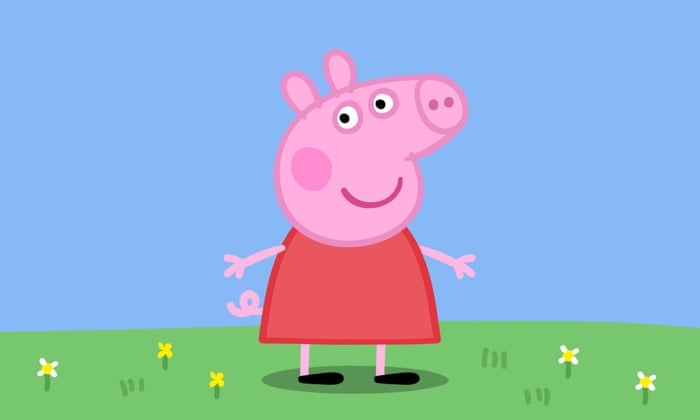By Benjamin Haas in Hong Kong and Tom Phillips in Beijing

China has struggled to stem the flow of foreign cultural influences.
Winnie-the-pooh, Peppa Pig, Charlie and the Chocolate Factory and even James and his Giant Peach are feeling the heat in China amid reports of a Communist party crackdown down on children’s literature.
With about 220 million under-14s and a rapidly growing middle class, China is home to a potentially massive market for children’s picture books.
With about 220 million under-14s and a rapidly growing middle class, China is home to a potentially massive market for children’s picture books.
More than 40,000 children’s books were reportedly published here last year alone.
But with an aggressive Communist party campaign against supposedly hostile western ideas currently underway, foreign storybooks appear to have found themselves in Beijing’s cross hairs.
According to Hong Kong’s South China Morning Post, Chinese publishers have received orders that the number of foreign picture books being printed in China must be slashed.
Storybooks from South Korea and Japan now stood almost no chance of published in China, one publishing source told the newspaper, while the supply of books from other countries would be “very limited”.
A second source who is an editor at a state-owned publishing house said Communist party officials had complained that foreign storybooks had caused an intolerable “inflow of ideology” from the west.
“[The government] has deliberately decided to constrain imported books and protect those written by Chinese authors,” the source added.
On Friday, e-commerce giant Alibaba announced it would ban the sale of all foreign publications on Taobao, one of China’s most popular online shopping sites in order “to create a safe and secure online shopping environment to enhance consumer confidence and satisfaction”.
China has struggled for years to stave off the influx of foreign cultural influences and those efforts have intensified since Xi Jinping became the country’s top leader in 2012 vowing to promote what he has called “the China Dream”.
Xi has declared that Chinese universities must become Communist party strongholds while education minister Yuan Guiren has warned that “enemy forces” are attempting to infiltrate hearts and minds on the country’s campuses.
The mainland publishing official told the South China Morning Post the book ban had been passed down orally and was “aimed at making people’s ideas conform with Communist Party dogma”.
There were, however, immediate doubts as to whether Beijing would successful in enforcing the prohibition of children’s books.
“I can’t imagine this restriction to be possible, because its implementation is so difficult, and it also has no benefit whatsoever for the people or the country,” one Chinese editor told the Financial Times.
There are currently six foreign titles on listed in the top-10 best sellers list by Amazon’s Chinese-language website, including Harry Potter and Sam McBratney’s picture book Guess How Much I Love You.
But with an aggressive Communist party campaign against supposedly hostile western ideas currently underway, foreign storybooks appear to have found themselves in Beijing’s cross hairs.
According to Hong Kong’s South China Morning Post, Chinese publishers have received orders that the number of foreign picture books being printed in China must be slashed.
Storybooks from South Korea and Japan now stood almost no chance of published in China, one publishing source told the newspaper, while the supply of books from other countries would be “very limited”.
A second source who is an editor at a state-owned publishing house said Communist party officials had complained that foreign storybooks had caused an intolerable “inflow of ideology” from the west.
“[The government] has deliberately decided to constrain imported books and protect those written by Chinese authors,” the source added.
On Friday, e-commerce giant Alibaba announced it would ban the sale of all foreign publications on Taobao, one of China’s most popular online shopping sites in order “to create a safe and secure online shopping environment to enhance consumer confidence and satisfaction”.
China has struggled for years to stave off the influx of foreign cultural influences and those efforts have intensified since Xi Jinping became the country’s top leader in 2012 vowing to promote what he has called “the China Dream”.
Xi has declared that Chinese universities must become Communist party strongholds while education minister Yuan Guiren has warned that “enemy forces” are attempting to infiltrate hearts and minds on the country’s campuses.
The mainland publishing official told the South China Morning Post the book ban had been passed down orally and was “aimed at making people’s ideas conform with Communist Party dogma”.
There were, however, immediate doubts as to whether Beijing would successful in enforcing the prohibition of children’s books.
“I can’t imagine this restriction to be possible, because its implementation is so difficult, and it also has no benefit whatsoever for the people or the country,” one Chinese editor told the Financial Times.
There are currently six foreign titles on listed in the top-10 best sellers list by Amazon’s Chinese-language website, including Harry Potter and Sam McBratney’s picture book Guess How Much I Love You.
Aucun commentaire:
Enregistrer un commentaire